Marie was in her 30s, not a rebellious teenager. Her friends knew her as a gregarious woman who expertly applied thick winged eyeliner behind her glasses, unafraid to stand out. But due to Marie’s intellectual disability, her father, Jim, had ruled her life for 11 years as her legal conservator. Marie knew she needed assistance with things like budgeting and making medical decisions, but she wanted to call the shots. “I need help with life!” she’d later say. “But I want them to show me, not do it for me.” In recent years, she had assembled a network of lawyers, family members, and others who shared her belief that she was capable of so much more. That’s why Marie was in the locker room, whispering to them on the phone. She was plotting her steps toward freedom.
In court filings, Marie and her supporters would accuse Jim of controlling her hard-earned money, forbidding intimate relations with boyfriends, isolating her from people he disliked, and verbally abusing her, calling her “stupid” and “fat.” He had relocated her from city to city as he chose and wanted to move her out of California altogether. Marie said the older she got, the more she craved independence, but every attempt to claim it was held up as proof that she didn’t deserve it.
“Everything was taken away,” Marie told BuzzFeed News. “A little bit every year.”
Jim told BuzzFeed News he loved his daughter, but that for someone in her situation, the world was full of hazards and people looking to take advantage of her.
“My job is to protect her and put her on the path that she can succeed as best as she can. And I think I've been doing that,” he said.
Jim said he had never been cruel to Marie and had given her the best possible quality of life. As for the limits he imposed, they kept her from mistakes she would regret. Jim said he didn’t take Marie’s accusations personally, even while disputing many of them. “I don’t blame her,” he said. “I’ve never blamed her. This is her disability, for heaven’s sake.”
Dozens of interviews and a review of hundreds of pages of court documents cast a light on the challenges that many families face in deciding the best way to support someone with disabilities. For Marie and Jim, it came down to a fundamental conflict about what Marie was capable of and who was best suited to help her achieve it, but also, more broadly, whether everyone has the right to self-determination.
Marie was intent on taking her chances. “I don’t care how long it takes,” she’d later say. “I’m going to keep doing it, fighting the conservatorship.”
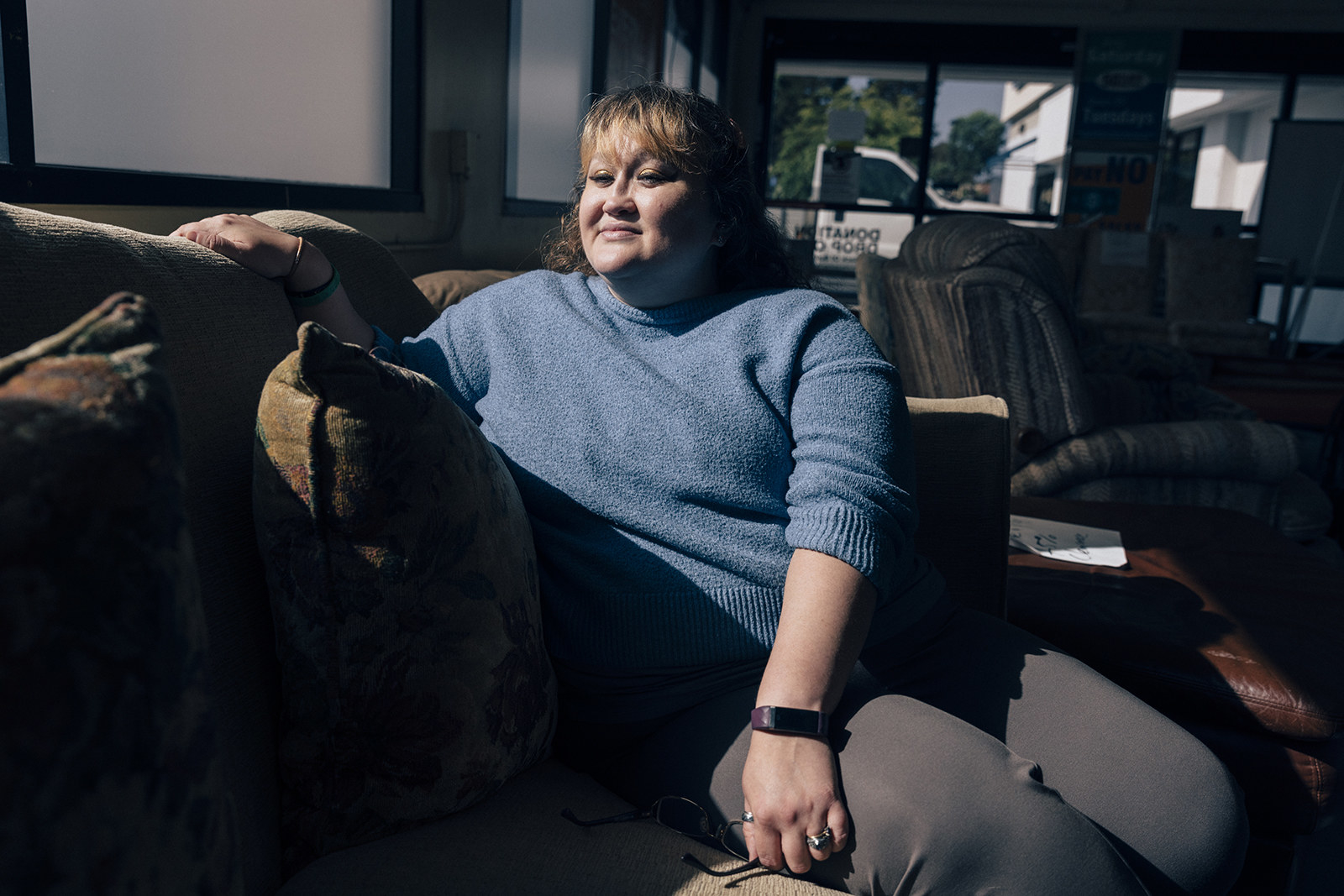
America’s guardianship system is designed to protect people so incapacitated by a mental or physical disability that they cannot make any decisions for themselves. BuzzFeed News recently exposed the lucrative industry that has arisen around it, wielding tremendous power with little oversight and swallowing up people who say they should have control over their own lives.
Experts said it can be particularly hard to obtain freedom from guardians (known as “conservators” in California) who are family members. The #FreeBritney movement has drawn international attention to the conservatorship of Britney Spears, but though her celebrity is exceptional, her predicament is far from unique. Marie said she felt “just like her” — a thirtysomething Californian who has fought mightily to break her father’s control.
Family guardianship is especially common among people with intellectual and developmental disabilities. Although it is meant as a last resort, many parents of children with disabilities seek guardianship as soon as they turn 18, often because schools present it as the only way to ensure their care. The National Council on Disability calls it a “school-to-guardianship pipeline.” Disability rights lawyers say they regularly receive panicked calls from parents who didn’t realize they had signed their adult child’s rights away.
Have you experienced America’s guardianship system? You can email guardianship@buzzfeed.com. To learn how to reach us securely, go to tips.buzzfeed.com.
“Years later they regret it,” said attorney Viviana Bonilla López, who recalled a 10-minute hearing granting a parent guardianship over an adult son. Afterward, the parent asked an attorney when they could register the son to vote, not understanding that he had just lost that right. Once granted, a guardianship can be hard to dissolve, even if parents wish to do so.
Court records describe frightening stories about family guardianships, from a man with quadriplegia who died with bone-deep bedsores after years of parental neglect to a man with a mental illness whose mother slit his throat with a box cutter.
Overwhelmingly more common are cases like Marie’s, where at stake is what some call the “dignity of risk”: the right to make choices freely, good and bad, to learn from and live full lives. For those who need support, there are options that are less restrictive than guardianship or conservatorship, such as “supported decision-making,” which enables people to construct their own support networks instead of having someone take over the person’s life and make their choices for them. Disability rights experts say that everyone, especially young adults, deserves the chance to learn from past missteps.
“The notion that we are who we will always be at 18 is wrong,” and typical of the double standard applied to people with disabilities, said attorney Zoe Brennan-Krohn, a member of the American Civil Liberties Union’s disability rights program who worked on Marie’s case.
“Think about what you were like as a teenager,” she said. “What if a judge assessed who you were and said you’d never be able to grow or change, or accomplish anything more?”
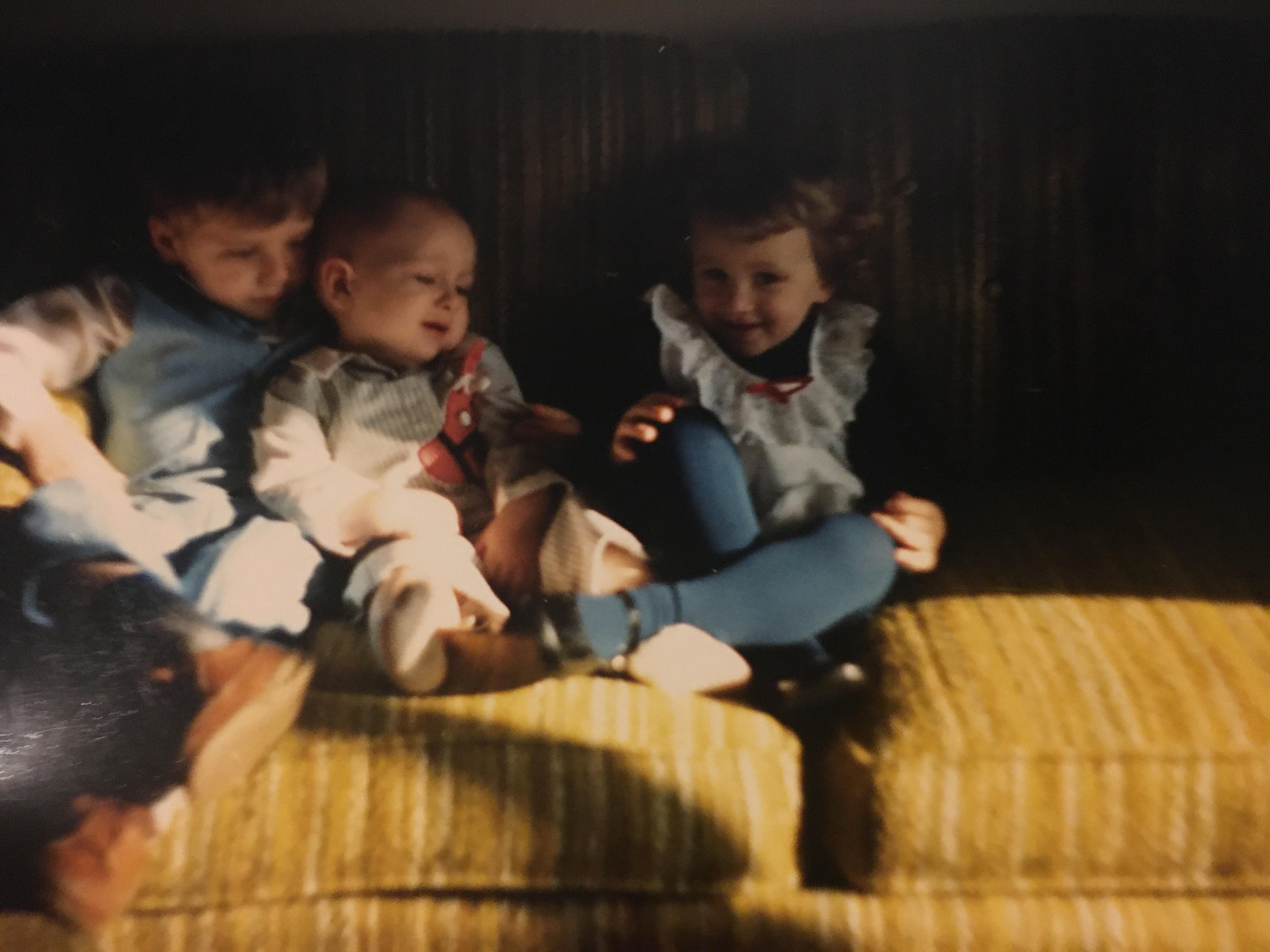
When Marie was a 2-year-old growing up in Michigan, she contracted meningitis, which left her with an intellectual disability. An IQ test she took shortly after she was placed in guardianship put her in the borderline intellectual functioning range. Marie lived a fairly independent life similar to that of other teenagers, she and her mother said, taking the bus to a job at McDonald’s where she helped work the cash register, cooking at home, and taking care of the dogs.
Advocates have questioned the usefulness of IQ scores, since they measure only certain skills and don’t factor in the chance someone has to develop them. Marie always felt her test results, which played a role in her guardianship determinations, didn’t reflect her true abilities. “I’m smart in so many ways,” she said. “I just have a different way of learning.”
“I’m smart in so many ways,” she said. “I just have a different way of learning.”
Marie’s parents were divorced and in 2007, when she was 21, her father agreed to take her in, offering a change of scenery. Her mother, Cathy Caldwell, said she was surprised that Jim applied for a full guardianship and didn’t realize it would enable him to control all their daughter’s life decisions indefinitely. If she had known about other options, such as becoming Marie’s Power of Attorney, she would have done that instead, she said.
Jim said Marie consented to the guardianship, but she told BuzzFeed News she did not understand what it fully entailed; the court records are unclear. Her father had promised her freedoms, Marie said, but she soon felt that he set unfair limits, beginning with her social life.
Like many young adults, Marie didn’t always have the best taste in guys. There was one who at first everyone in the family liked — Jim even took him on a family vacation — but who stole Marie’s debit card. Marie’s Aunt Nancy would later testify that her own daughters, who don’t have developmental disabilities, acted out in some of the same ways as Marie. The behavior was “all part of normal child-rearing,” she said.
But the incident stuck with Jim and his supporters in the family. A decade later, they were still citing it as part of their evidence that Marie needed his protection.

Marie first attempted to fight her guardianship in 2011.
“I want my dad to let me be me and grow,” she wrote in a letter to a Michigan probate court.
But soon after, Jim relocated his family to California, where he later worked as an operator of medical devices used in heart surgery. Marie had no choice but to follow, and so did her guardianship, which in that state is called conservatorship.
“He started saying that I couldn’t do things because I wasn’t that smart,” Marie said. “It was all, You have a disability, blah, blah, blah.”
These allegations, and others from family members and supporters who either witnessed the events firsthand or heard about them from Marie, are detailed in hundreds of pages of court records.
“There’s no locks on my doors, no privacy,” Marie told a court investigator. “I don’t want to be told that I can’t do stuff. I am smart. I love my family, I just want to do something for myself.”
Marie said she wanted to take public transit but wasn’t allowed. She wanted to cook — everything from spaghetti to big roast dinners — but Jim said she couldn’t do that, either. Marie said Jim wouldn’t tell her how he managed her money, even when she worked two jobs, one at a thrift store and one at a computer service center, while drawing her social security support. Instead, he gave her an allowance of his choosing. As for Marie experiencing intimacy with a partner, that was out of the question.
As for Marie experiencing intimacy with a partner, that was out of the question.
Those limits were set for good reason, Jim said. He couldn’t let her wait at a bus stop because “People will see her disability and take advantage.” He couldn’t let her cook without supervision because she had sometimes left the gas on. He said he had in fact told Marie about what he did with her money, and that the no-closed-door policy was appropriate when her boyfriends visited. “I didn’t allow them to have sex,” he said.
Jim often compared Marie to her much younger half-brothers, she said, telling her she would never be as smart or independent. Since she’d always need a guardian, she recalled him saying, one day she’d be passed to them.
Jim told BuzzFeed News that he wanted his daughter to be happy and that keeping her care within the family would be the best way to achieve that because she, unfortunately, was not as capable as she thought she was.
“Academically, she has the tools of a fourth-grader,” he told BuzzFeed News. “She is very, very vulnerable in many ways.” He said that maybe one day she could find a partner he approved of, and they could live with him in his house. Preferably, he said, her mate would be another person with disabilities.
“A normal-functioning human being probably wouldn’t have the tolerance for Marie,” he said, but if she found someone like her, “believe me, I would be all for it.”

Other adults under family guardianship have voiced similar grievances in cases reviewed by BuzzFeed News, but with permanent repercussions.
Seven years ago, Steven Allen, a 38-year-old Minnesota man who has fetal alcohol syndrome and bipolar disorder, had asked his guardians — his adoptive parents — to let him see his girlfriend, Candace, more often. They said they would if he had a vasectomy, and they “untruthfully” persuaded him to sign a consent form, his lawyer later argued in court, adding that Allen’s parents did not seek the court approval required in Minnesota before sterilization procedures.
“They told us no child we had would be a good child,” said Candace, who has disabilities of her own as a result of a traumatic brain injury.
Allen said he didn’t understand what he was consenting to but did as told. The couple got engaged, but his parents continued to bar them from living together and otherwise limited their time, according to the legal complaint. At age 34, he worked at a grocery store, cooked his own meals, and could balance a checkbook. He wanted more autonomy.
After Candace’s mother, Tammi, got involved, Allen successfully contested the guardianship with an attorney from a local autism law center. His parents withdrew as guardians after the complaint was filed. They did not respond to repeated requests for comment.
Now Tammi serves as guardian for both of them, but she doesn’t limit their alone time, and she helps manage their money instead of taking it from them, the couple told BuzzFeed News. The family vacations together and recently started a candy company.
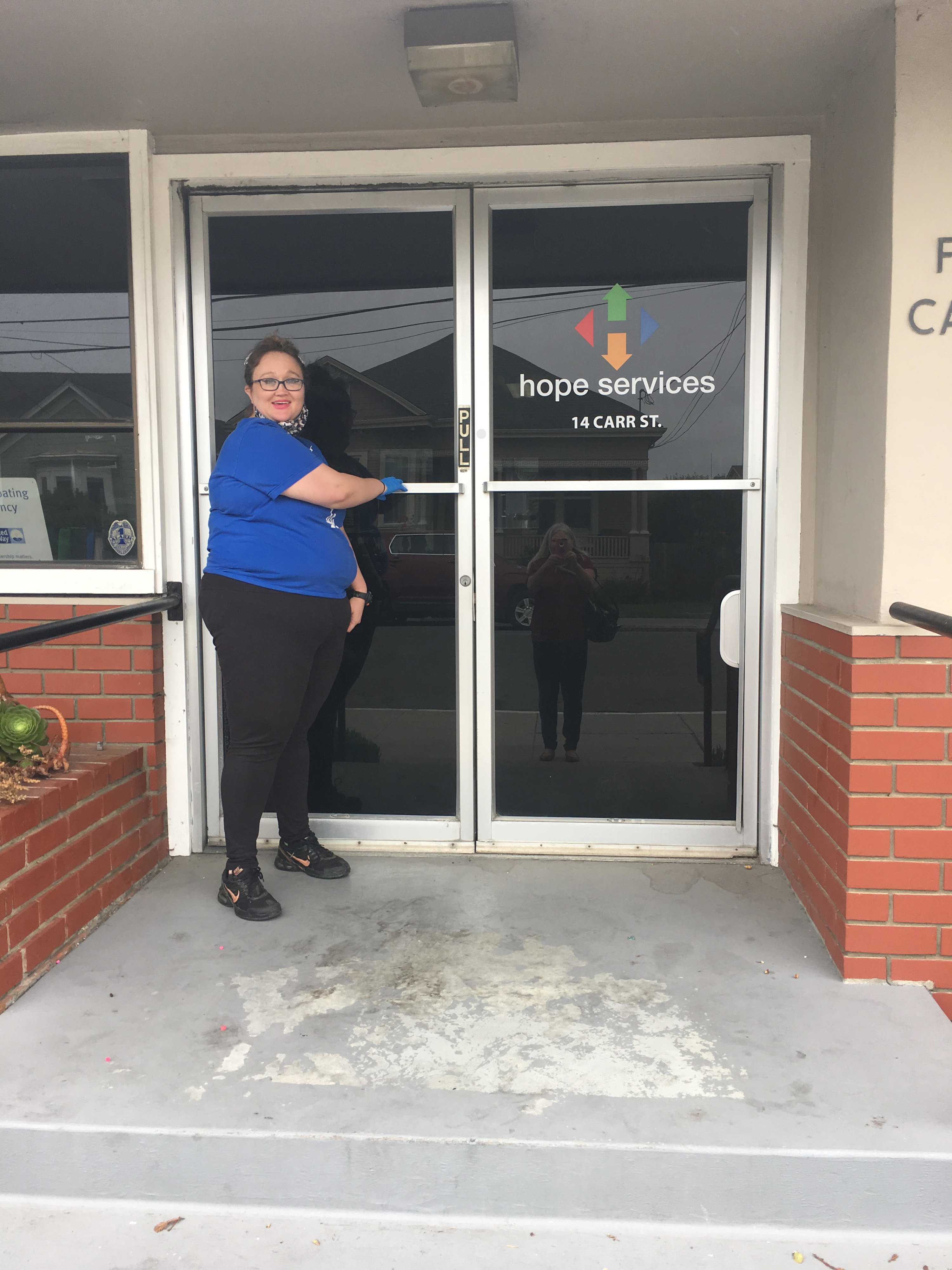
Marie began reimagining her future when she got involved in a local center for people with disabilities in Ventura. She started volunteering at a convalescent home and advocating for others, even leading classes herself. Soon, she was doing things she never thought herself capable of — a video shows her wearing a pink flower pinned to her hair and a jumble of necklaces, eloquently explaining how it feels to be called “retarded.” But it was hard for her to put down roots. Jim had split up from his second wife, who was Marie’s co-conservator, and moved to Northern California, where Marie had to spend half of every month with him.
Through the Ventura center, Marie learned of an “independent living” program through which she could rent a room on a community college campus and have access to continuing education and staff support. She feared Jim would not approve, but she tried to join the program anyway. When he found out, he took away her phone, she and others later told the court. (He acknowledged taking her phone away a few times but said he couldn’t recall exact dates.)
Those she met through the center grew concerned about Marie’s situation. One of them was a woman named Suzanne Francisco, who became a professional advocate after raising three kids with disabilities.
Francisco said she saw that Marie was capable of much more than she was allowed.
“People often learn helplessness,” she said. “Without access to the services they need, and without having people in their life that believe in them, they can’t progress.”
With her help, and that of family members who stepped up, Marie filed to end her conservatorship in March 2018.
“My human rights are being violated,” she wrote.

Marie’s advocates argued that she would flourish with the help of “supported decision-making,” an alternative to guardianship that allows people with disabilities to become decision-makers in their lives. Together, they and their support network draw up a plan, which can be presented to a judge considering whether someone should exit their conservatorship.
Supported decision-making is relatively new, but its proponents say it can work for a wide array of people with disabilities. Decades of prior research found that when people with disabilities make their own decisions they’re more likely to be employed, healthier, happier, and more involved in their communities.
One study found that women with intellectual disabilities were less likely to suffer abuse when provided with education to improve problem-solving and independent decision-making.
Conversely, studies have found that appointing a guardian for young adults with intellectual disabilities did not necessarily help them. “The guardianship often appeared to have benefited the guardian, rather than the person under guardianship,” a recent National Council on Disability report said.
Even the National Guardianship Association, which represents guardians, backs supported decision-making, calling it a “promising” measure that “should be considered for the person before guardianship.”
When a judge granted Marie a hearing in 2018, it was an opportunity she felt prepared for thanks to the team now behind her.
But Jim took Marie’s phone away beforehand, cutting off her contact from her network for days at the time she needed it most. When Francisco saw her in court that August, Marie “was like a different person,” she said. “She had her head down and wouldn’t even look at me.”
“I must not only save Marie from outside predators just waiting for an opportunity, but Marie often requires being saved from herself,” her father said.
Jim and his side of the family told the judge that if Marie was released from conservatorship, or given just a bit more leeway, she could end up hurt, sexually assaulted, or worse. They provided examples that they thought spoke to her inability to take care of herself, from the boyfriend who took her debit card to the times she left her purse in a shopping cart at Target or forgot to blow out a candle.
“I hate to say this,” Jim told the judge, “but it is a proven truth, that I must not only save Marie from outside predators just waiting for an opportunity, but Marie often requires being saved from herself and her own lack of ability to decide what is healthy and safe for her.”
“As she gets older, she seems to get more bold and denies her deficiencies which put her even more at risk,” his ex-wife wrote. She did not respond to a request for comment.
For the two people legally entrusted with her care, Marie’s mistakes — even the ones she made when she was much younger — were proof of her permanent limitations. But people without disabilities are rarely held to those standards. A BuzzFeed News review of criminal records found that, unknown to Marie, her team, or the court, Jim had made his own mistake in the not-too-distant past.
At the time of the court hearing, he was on probation following an arrest for drunk driving in 2016. He pleaded guilty to a misdemeanor charge that California calls “wet reckless” and served three years of probation.
Jim acknowledged the charge to BuzzFeed News — he said diabetes may have skewed the breathalyzer reading, although he recalled having two or three drinks — but he didn’t see the connection between his situation and his daughter’s. He didn’t just hold his daughter accountable for long-ago mistakes, he said: “I evaluate how she is living today.”
Marie was under a general conservatorship. California also allows for a “limited” option, under which the courts identify seven basic powers a conservator might wield — such as the ability to dictate someone’s education and the right to give or withhold medical consent — and bestow them according to the specific needs of the person in question. Before the hearing, a psychologist recommended that Marie be granted the right to socialize and pursue sexual and romantic relationships. Her romantic history “didn't sound unusual or an indication of need for a conservator,” he wrote.
But Jim didn’t want to give up control, arguing that granting Marie even one of the seven powers “could have a domino effect” with “some big repercussions.”
Presiding that day was Judge Glen Reiser, who regularly trained other California judges on conservatorships. He chastised Jim for taking away Marie’s phone, reminding him that conservators cannot “imprison somebody by taking away their means of communication.” He transferred her conservatorship from general to limited. But he granted Jim all seven powers over his daughter.
Judge Reiser, now retired, told BuzzFeed News that he had favored an “incremental approach” rather than a full restoration of rights. He said Marie’s was a nuanced case “where there may be sufficient life skills to live independently, but needing a closely monitored support system, at least provisionally.”
Addressing Marie in court, he congratulated her on her loving family. “I think to a large degree you’re a very lucky young lady,” he said.

Compared to what some have faced, Marie was indeed lucky. BuzzFeed News uncovered cases in which people were neglected, abused, or even killed by family members serving as their guardians. Other family guardians have stolen hundreds of thousands of dollars from their wards.
In 2008, Todd Laseke became the guardian for his son, then 18, who was awarded over $1.3 million in a medical lawsuit after suffering a brain injury as a child. In three years, Laseke cleaned out more than half a million dollars from his son’s trust fund, only a small fraction of which went toward medical care, court records show.
It wasn’t until they got an anonymous tip that police investigators found Laseke had blown it on cannabis and cocaine, a car, a new home, trips to Florida, porn website memberships, and another family member’s medical bills. Meanwhile, he hadn’t bought his son health insurance and had reportedly left him disheveled and unkempt.
All in all, Laseke spent at least $350,000 more than he should have within 38 months, and that was a conservative estimate, according to the son’s court-appointed legal representative.
Laseke, who could not be reached for comment, was convicted and sentenced to five years in prison for theft, but the damage was done. His son was forced to place the little money remaining in his account in a supplemental needs trust and go on state assistance. The trust fund “could have paid for his care for his entire life,” a legal representative wrote in a victim impact statement.
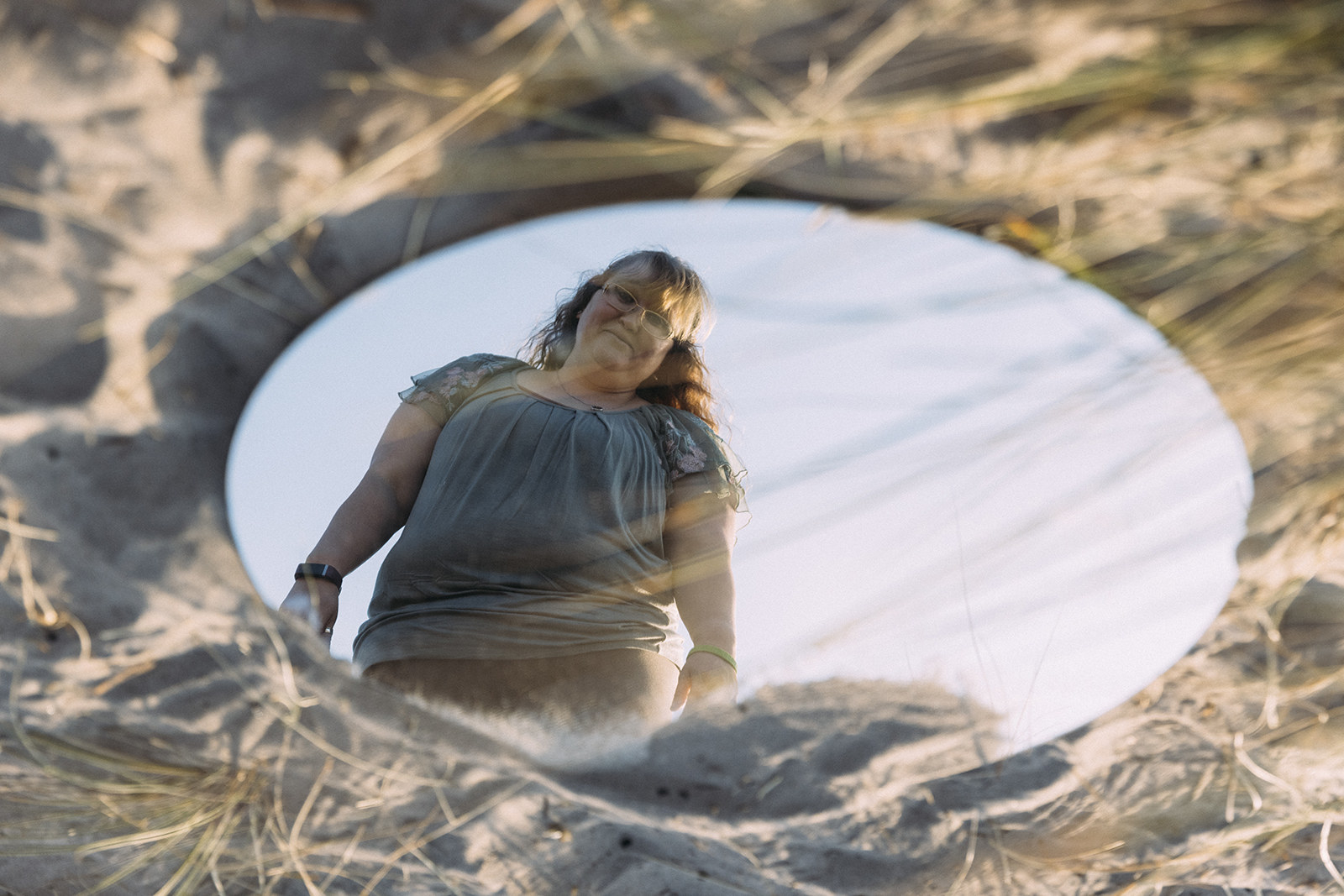
Marie felt despondent after the 2018 court decision. It got worse when Jim filed an emergency petition to force her to move back to Michigan soon after. He was building a million-dollar home in a “friendly, safe community,” he told the court. But Marie didn’t want to move.
Determined to help Marie gain her freedom once and for all, Francisco, her professional advocate, helped bring in a new legal team. The stakes were high, Francisco said: If she lost this time, Jim would probably be her conservator forever.
Marie had received many assessments in the past, but her supporters alleged that the people conducting them had been influenced by Jim’s “presentation of Marie.” In 2020, she received two fresh evaluations that were strikingly different from those before.
The first evaluation, by a clinical psychologist hired by her legal team, said Marie was able to understand “sophisticated” concepts and concluded that she wouldn't need a conservatorship if she had outside support.
Marie was appropriate, communicative, and thoughtful, the psychologist wrote, clear about her limitations but also about her desire to live independently, and had reasonable goals for the future. Some of Jim’s examples of Marie’s incapacity were “within the realm of what typical people do and is not indicative of cognitive or emotional dysfunction,” she wrote.
The second evaluator was a court investigator who didn’t take a position on the need for conservatorship but was adamant that Jim should be removed.
“There is an element of manipulation, control, and impediment in development in the conservatorship that is not conducive to Marie's growth and independence,” she wrote. “Marie has indicated feelings of intimidation, emotional exhaustion, depression and oppression” and “has reported, articulately, the challenge of navigating her desire for independence.”
Jim said he hadn’t read the two new reports but reiterated that Marie’s previous evaluations and the people who knew her best came to very different conclusions about her capacities.
Marie’s new legal team included the attorney Jonathan Martinis, who in 2013 represented Jenny Hatch, a Virginia woman with Down syndrome who fought her parental guardianship. The decision in that case was one of the first to establish the right of a person with intellectual disabilities to use supported decision-making in lieu of permanent guardianship. Since then, 13 states have passed laws officially recognizing it as a viable alternative to guardianship, and dozens of people have been released into these sorts of arrangements.
“Jim can’t do anything to me anymore,” she said with a wide grin.
Marie came up with her own plan. Her Aunt Nancy would help her with math, budgeting, housing, and education. Her cousin would assist in completing job applications. Her aunt and uncle would provide medical expertise. Another cousin would help with cooking as well as budgeting for meals. Her brother would guide her educational plans. Her mother offered to consult on all safety matters. And advocates would help Marie navigate state support options. With this plan in place, they argued, her conservatorship was no longer necessary.
Team Marie prepared for battle, but after years of strife, the resolution was surprisingly swift. Faced with the prospect of going to trial against his daughter, Jim settled in June.
Jim said he believed he would have won, but he didn’t have the energy or the money to keep fighting. He reiterated that he didn’t think Marie should live on her own.
“But she’s going to try, and I’m going to be as supportive as I can,” he said.
On the day the court, over Zoom, removed Jim and his ex-wife as her conservators, Marie shared a celebratory sangria with her aunt and put on a bright flower-printed shirt and pants to meet her lawyer and advocates for lunch.
“Jim can’t do anything to me anymore,” she said with a wide grin.
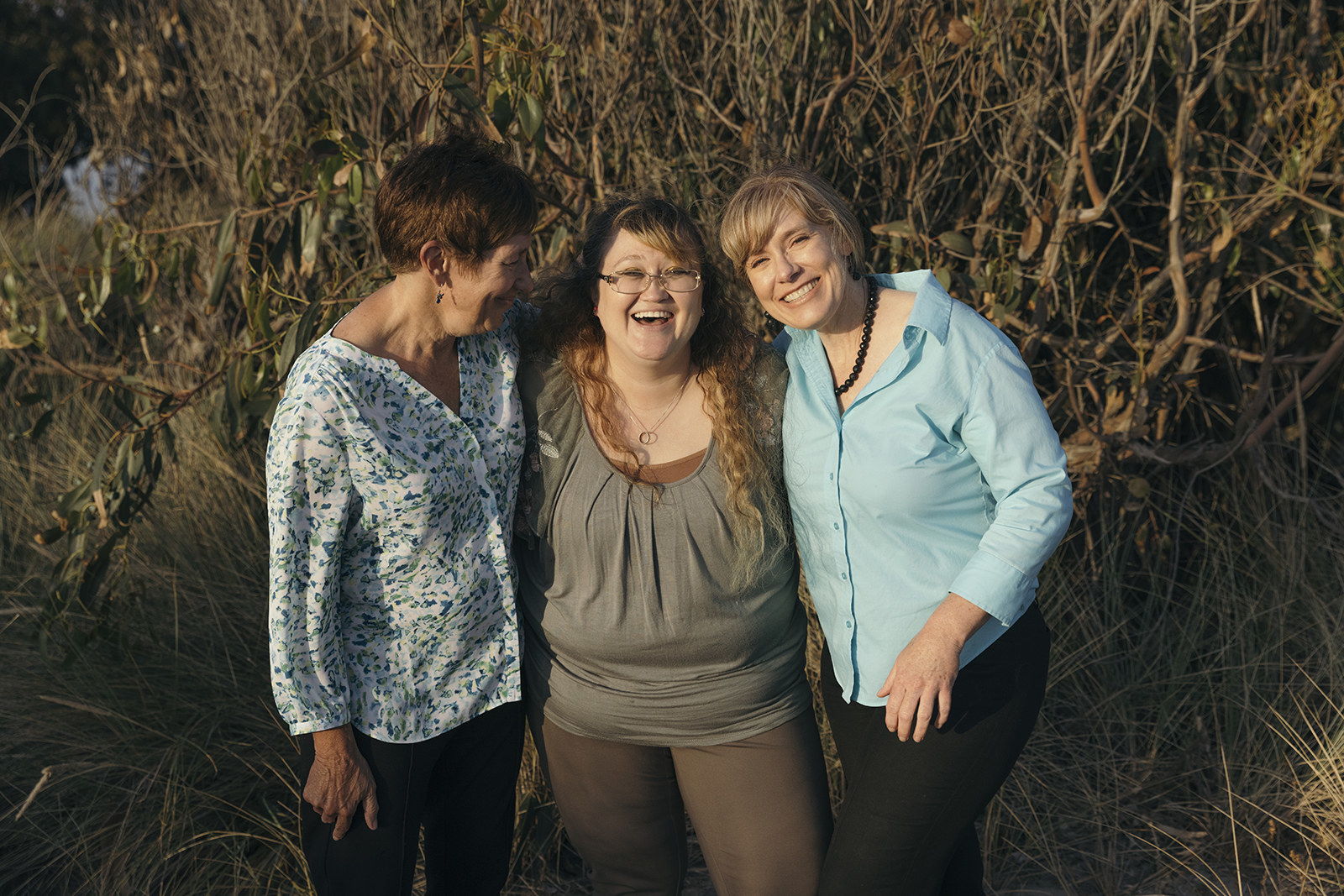
As part of the settlement, Marie will be under the co-conservatorship of her Aunt Nancy, who lives in Michigan, and a program manager at the Ventura center. After a year, a judge will revisit Marie’s case and decide whether to release her completely. Regardless of what happens, Jim can never again serve as Marie’s conservator.
In September, Francisco, Marie’s professional advocate, and Nancy, her aunt, helped her move to the independent living program in Ventura that she had longed to enroll in years ago. Francisco said Marie didn’t need much help — she had already packed most of her belongings into boxes and stacked them neatly in the U-Haul.
Her new home is blocks from the beach in downtown Ventura, where photos show her wearing a shirt that says “all in for self-determination” and pumping her fists up to the sky. On Facebook, Marie leaves emoji messages on news articles about Britney Spears. “I’m praying for you,” she recently wrote. “I’ll be your advocate.” If Marie had fans of her own, she said, she would tell them to “never give up.”
“Be persistent. Your dreams can come true. Don’t let anyone in your family tell you you can’t do things.” ●

